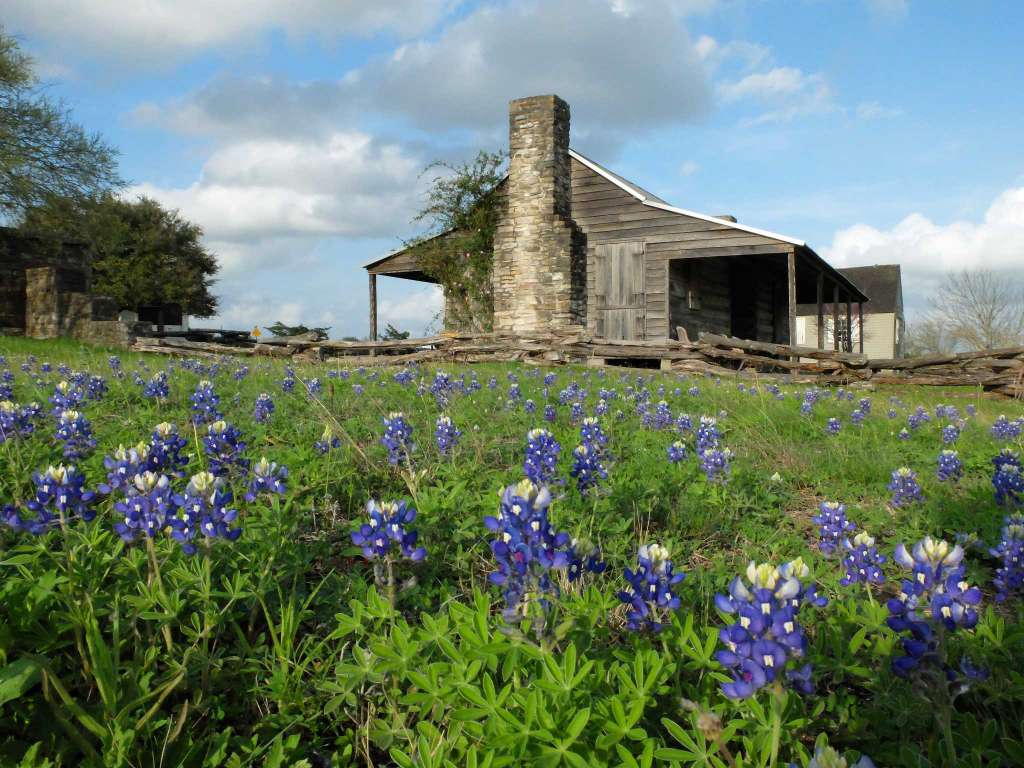By Molly Glentzer
Let’s face it: Human nature and Mother Nature do not always live in synch.
Some azaleas couldn’t wait for the 82nd annual Azalea Trail this weekend in Houston.
The East Texas dogwoods are peaking now, well ahead of the 79th annual Texas Dogwood Trails Festival in Palestine later this month.
And the state’s sacred bluebonnets may be at their fullest before next month’s 53rd annual Bluebonnet Festival in Chappell Hill.
Home gardens haven’t held back, either. In Brenham, my antique roses have put on a phenomenal “April” flush in the past week. So much for showing them off to guests at Easter.
And it’s not just happening in Texas.
Experts say an exceptionally warm winter across much of the U.S. has triggered many flowering plants to strut their stuff earlier than normal. Washington, D.C.’s famous cherry blossom trees could see their earliest display ever, according to the National Park Service.
Bloom cycles that might normally be staggered across several months, from January through April, have all arrived at once in Palestine. On the plus side, suggested Mary Raum, that city’s tourism and marketing manager, “It’s uniquely beautiful.”
Perhaps weather isn’t the only problem: It’s our expectations.
Bart Brechter doesn’t particularly like the name “Azalea Trail.” He’d like people to think of Houston’s major spring event more generally as a home and garden show. In fact, in its first years, the tour was called, simply, a “Garden Pilgrimage.”
During the 16 years Brechter has been curator of gardens for Bayou Bend and the River Oaks Garden Club, which stages the trail, he can only recall two years where “everything worked out perfect.” Meaning that the azaleas and a lot of other blooming plants peaked the same weekend as the tour.
The various azalea varieties don’t all bloom at the same time; and those in full sun, where it’s warmer, tend to bloom before those in shade, where it’s cooler, Brechter said. Still, he promises other flowers this weekend: The tulips are coming on strong, and bedding plants are looking good.
Brechter, who tracks bloom times each year at Bayou Bend, says each of the past five years has been different. Anomalies in Houston’s weather often occur naturally, as a result of the “push-pull” between Canadian cold and warmth from the Gulf of Mexico, he said.
Julie Marcus, a senior horticulturalist at Austin’s Lady Bird Johnson Wildflower Center, keeps her eyes on bluebonnets – by far the state’s most popular flower, and an obligatory backdrop for family photos. But she also wishes people had equal appreciation for all the other wildflowers Texas delivers each spring.
She was thrilled that the Texas mountain laurels bloomed early in the Hill Country this year because those purple blooms often get nipped by late freezes. The flowers of the spiky agaritas, giant spiderwort, Carolina jessamine vines and little golden groundsel are “pretty much on schedule,” she said.
Gallardias, lantanas, coreopsis and black-eyed Susans typically put on shows into early June. All those, and more, contribute to what Marcus considers the real spring peak at the center, in late April or early May.
“And in the fall, there’s a whole other show of yellows, purples and golds,” she said.
For the record, this year’s bluebonnets are early, but it’s not time to hit the road in search of them just yet. Their companions, vibrant orange Indian paintbrushes, are just beginning. Marcus expects this weekend’s rain to contribute to an early bluebonnet peak, maybe by 10 days or two weeks, which would mean the last week of March.
She predicts a good, and longish, spring blooming season overall – “unless the rain turns off and it gets blazing hot.”
In which case, we’ll just welcome an early show of summer’s crape myrtles.
